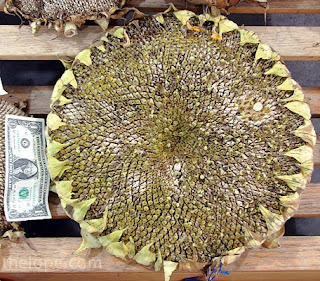If you've read my blog long enough, you've probably noticed that I can go on and on about my beautiful boy, but seldom mention much about my daughter.
I've noticed that, too, and rather than continue being self-conscious about it, I thought I would just explain.
As I've mentioned before, we adopted our daughter from Ukraine at 16 months old. And while most people think she was just a baby when we brought her home, that is not the truth.
The first 16 months of my daughter's life were filled with fear, pain, and utter loneliness. A healthy baby abandoned at a poor hospital, it took the hospital 6 months to get around to placing her in the nearest orphanage. Healthy babies don't get much attention at a poor, over-wrought hospital. She was named by the village registrar as she filled out the transfer forms. My daughter did not have a name for the first 6 months of her life.
Once she arrived at the orphanage, she quickly became ill with constant infections related to poor hygiene. By the time we found her in the children's hospital, she had been in the hospital three other times with kidney infections and she suffered with whooping cough, all by 16 months old.
So we did not bring home a baby. We brought home a cold, hardened little girl who was already world weary and emotionally stunted. But we believed we could help her and have devoted the past 6 years to doing just that.
We tried to just "love her through it." We showered her with love, time, and affection. It made her more frightened and combative. We tried giving her space and patience. All she did was retreat further. We tried family counseling. My husband and I explored things in our own pasts that may have been complicating our relationship with our daughter. Our self-understanding improved, but our daughter did not.
Finally, we tried an attachment therapist. And it was only then that things made sense. Our daughter has Reactive Attachment Disorder. She rejects an emotional bond with anyone. She does not love; she cannot love. Any emotional intimacy simply terrifies her, on a subconscious level, and she works to repel any emotional connection with anyone. She operates, emotionally and mentally, as if she is still an orphan. She feels especially threatened by a parental relationship. She rejects it openly. Her heart is locked away, "safe" from all people. She trusts no one, she loves no one, she believes she needs no one.
Emotionally, she cannot distinguish between strangers and family. When I explain that my daughter does not love me, it offends the sensitivities of the average person and they argue with me, emphatically believing that she does love me. They argue partly to spare my feelings, but even more to protect their own understanding of what a child is: innocent, pure-hearted, vessels of love. But my daughter does not love me. And she doesn't love you. She loves no one.
In order to preserve this emotional solitude, she must repel any and all close relationships. All she knows is that she feels happier and more comfortable when there is distance, the more the better. Distance is created by tension. Tension is created in any number of ways; open defiance or passive aggression. All you will know, if you are around my daughter long enough, is that you feel bad around her. If she is around you enough, you will feel bad all the time, even after she's gone to school, gone to bed, is off playing alone. You start to shut down emotionally, yourself. You stay within yourself; you feel so heartsick that you begin to believe you have nothing to offer anyone; nothing anyone would want. If your own child does not want you, who else would? That is the state my daughter, subconsciously, works to affect in anyone close to her.
This is where my family is right now with my daughter. It happened slowly and systematically. First, it was just me, and I thought I was just having difficulty adjusting to a challenging child. I began loathing myself for my seeming weakness in the face of her challenges. And I had help from others in this self-loathing. People have perceived me, at times, to be cold toward my daughter, not hugging her enough, etc. When I was weak, I agreed with them, pushing aside the reality that, unless there was someone else watching, she recoiled at my touch, my hug, my affection. I began to believe that., somehow, I was the problem for my daughter.
Then my husband began to struggle. He was surprised at how quickly and deeply he would lose his temper with her. Always a remarkably patient person, the change in him was notable. He began to hate himself for how easily angered he was with her.
And now it has happened with my son. The nicest kid in the world, he is no longer interested in playing with or even really speaking much with his sister. She does all she can to hurt him because she has finally figured out that the easiest and most undeniable way to incense us is to hurt him. And she is right.
We have been working diligently and tirelessly to save our daughter and to save our family. We have become a "therapeutic family" for her which is a "through the looking glass" type of parenting that, to see it, appears bizarre and harsh; emotions are removed, seemingly, and unbending rigidity is replaced. Again, onlookers perceive that we are hard on our daughter. The reality is, our daughter is hard on us, and we are fighting for our lives here. If my daughter cannot be healed, she will live a life of emotional and moral turpitude, and the rest of us will suffer as we watch her live so miserably.
The one blessing out of this struggle is that it allows us to see and love and appreciate every moment with our son. We take very little for granted. We appreciate that he is happy to see us in the morning and that he says goodnight with a kiss before bed. That he hugs us and smiles and means it. That he will not malign us when our backs are turned. That we can see him enjoy things and that he enjoys things that we enjoy. That his heart is at peace when we are happy. It is a blessing to appreciate his touch and to notice that his eyes meet mine. It is a gift that I look forward to seeing him, and he smiles when he sees me. It is an act of love that he tells us when he is sick or hurt and that he calls for us after a bad dream. Do you know that a child makes a choice to depend you when she is sick? Do you realize what an act of trust it is when a child calls for you after she has thrown up in her bed? Do you know that some children would choose to sleep in their own vomit than give over enough of themselves to ask for help? This is the perspective my daughter has brought to our lives. And this is why I have endless moments to cherish with my son. And why I struggle so with so little to write about my daughter.
It is not that I don't love my daughter, I do; with all my heart. But loving my daughter, in all honesty, is about withstanding pain more than it is about enjoying moments of love. And that is not something easy or pleasant to write about.
So please forgive me if my writings seem to exclude my daughter. It is not for lack of love, but for lack of beautiful moments.

For more information on Reactive Attachment Disorder, I recommend:
ATTACh
One more thing, there are more of us out there than you might think. If you see a family where the dynamics seem to be just a little bit "off" and you are about to conclude that the mom is just "mean" or cold or controlling, please consider for a moment that there may be much more to the picture than you can see . . . and then say a prayer for strength for her and peace for the child. I would appreciate it so much. Thank you.






































































